The 2001 Schutzhund USA Nationals
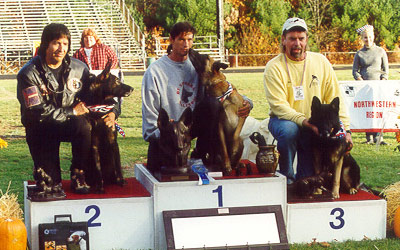
This was an interesting national event. Bob Winski, Dave Wood, and friends did an excellent job of running a well-organized competition. The facility (Tauton High School) was a nice facility although it always seems like there is something missing when you can't get a beer (like you can in Europe) at a Schutzhund event. That's the price you pay for having a national event at a high school.
The competition had a high turnout. Not too many weeks before the event, there was a question about enough entries when in fact, there ended up being over 70. That was too many competitors for a 3-day event.
I was on the field at 5:30 AM on Saturday to begin filming in the rain at 6 AM and I left at 8 PM. There was no lunch break. This is crazy. USA needs to get a grip on running these events. Fourteen-hour days result in fatigue for the judges and the people working the event.
For three days, I stood on the field and filmed for 35 hours. How can a judge be expected to maintain a fair outlook over 14 hours of standing in the rain? The answer is they cannot and it ALWAYS shows in the variable scores. In my opinion, competitors get shortchanged. If anyone doubts that this happens, they only need to watch my videos.
I understand that there is a financial consideration in holding these events. But if it takes 70 dogs to cash flow the competition, then USA needs to make the nationals a 4- or 5-day event and the sponsoring club needs to get financial help from the head office.
There were too many medium- to low-quality dogs entered this year. An argument can be made that because of 9/11, the standard was lowered. People wanted to show their support for the nationals and I can accept that. This was a noble reason for traveling to Massachusetts to support USA.
But the fact is every year that I spend three days filming the nationals, I am on the field for 28 to 30 hours. I always find myself asking how some of these dogs got there. If the goal of the handlers is to just get their dog into the nationals, there may be something to be said for showing a medium-quality dog. But the argument can also be made that if the standard of entry is set so low, does showing in the nationals really mean anything? I think not.
The current method for qualifying for the nationals needs to change. Right now, one only needs to get a qualifying score at any local Schutzhund club under your judge of choice. This is too easy and it's wrong. Local club trials are not and should not be judged like a national event or even a qualifying event. They are what they are: a local club trial.
If a person wants to go to the nationals, they should have to qualify at a regional event. USA has regional events throughout the country every year. Regional competitions need to be used as a qualifier for the nationals. That's the way it is done in other countries. That's the way it should be done in the United States.
Next year's competition will be held in Alabama with Pam and Gary Hanrahan's Club being the host club.
If you have an interest in viewing the 2001 Schutzhund USA National Championships, you can stream it online. View Part 1. View Part 2.



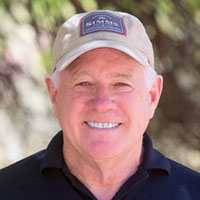
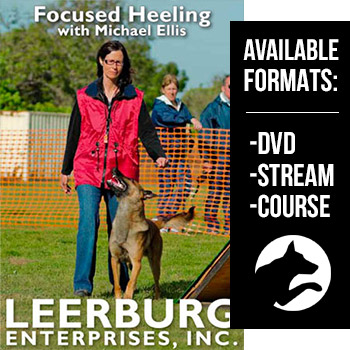
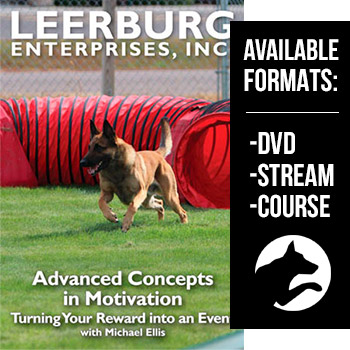
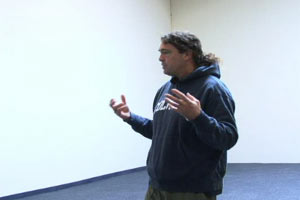
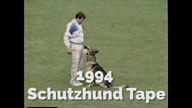
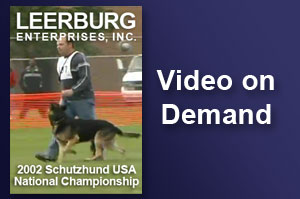
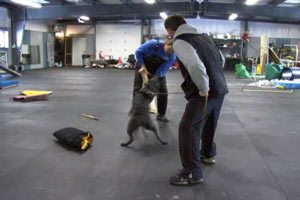
Ask Cindy.